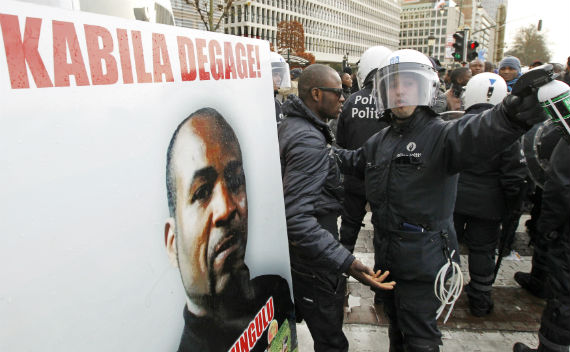Congo Elections: It’s Looking Bad
More on:

The election commission is supposed to announce the results of Congo’s presidential elections on December 6, but already officials are warning of a postponement. Meanwhile, there are many stories of gross electoral malfeasance. The head of the electoral commission, seen as an ally of incumbent president Joseph Kabila, is saying that the president has a substantial lead in the votes counted thus far. The chief opposition candidate, Etienne Tshisekedi has already issued threats of violence by his supporters if early returns favoring Kabila are not reversed.
The Catholic Bishops on December 4 warned that “in the current situation, the image we’ve given is that a high-speed train going straight toward a wall.” Bishop Nicolas Djombo called “on all political actors, on all leaders to break the train….” The highly respected non-governmental organization International Crisis Group has placed Congo on its “conflict risk alert” – along with Syria. According to the press, South Africa president Jacob Zuma has telephoned Kabila, Tshisekedi, and a third presidential candidate, Vital Kamerhe, to try to lower the temperature, and that the ambassadors from Russia, Gabon, and a representative of the UN met December 5 with both Kabila and Tshisekedi. I suspect there have been other diplomatic approaches that have not made the media. Meanwhile, the press reports well-to-do residents of Kinshasa are seeking refuge in Brazzaville, across the Congo river.
Kabila changed the constitution earlier this year to eliminate the runoff provision if any of the candidates failed to receive a majority of the votes. With the power of the incumbency, it still seems likely that Kabila will get more votes than any of the other ten candidates. But, there seem to be enough voting irregularities that any of the presidential candidates can claim that the elections are not credible. The international community – and many Congolese – are afraid that the contested elections and refusal to accept the results could re-ignite Congo’s civil war. Already there have been demonstrations and fights amongst Congolese factions in Brussels and Pretoria.
More on:
 Online Store
Online Store
